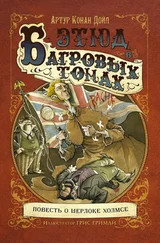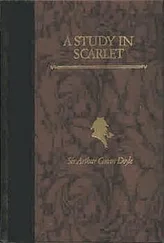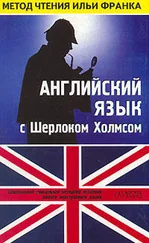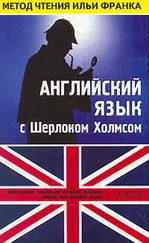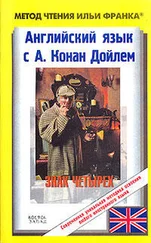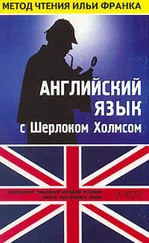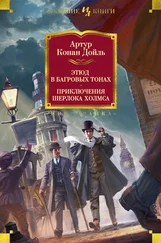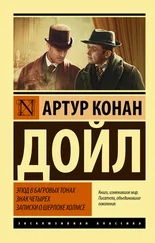personage ['p@:s(@)nIdZ], tongue [tVN], laugh [lA:f], hustle [hVsl]
"My dear fellow, what does it matter to me. Supposing I unravel the whole matter, you may be sure that Gregson, Lestrade, and Co. will pocket all the credit. That comes of being an unofficial personage."
"But he begs you to help him."
"Yes. He knows that I am his superior, and acknowledges it to me; but he would cut his tongue out before he would own it to any third person. However, we may as well go and have a look. I shall work it out on my own hook. I may have a laugh at them if I have nothing else. Come on!"
He hustled on his overcoat, and bustled about in a way that showed that an energetic fit had superseded the apathetic one.
"Get your hat (берите шляпу) ," he said.
"You wish me to come (вы хотите, чтобы я пошел с вами) ?"
"Yes, if you have nothing better to do (да, если у вас нет более интересного занятия) ." A minute later we were both in a hansom, driving furiously for the Brixton Road (минутой позже мы были в экипаже и бешено неслись по направлению к Брикстон-роуд; hansom — двухколесный экипаж с местом для кучера сзади; to drive — гнать; ехать) .
It was a foggy, cloudy morning (утро было туманное и облачное; fog — туман; cloud — облако, туча) , and a dun-coloured veil hung over the house-tops (и мутная пелена зависла над крышами домов; dun — серовато-коричневый, тускло-коричневый; темный; мрачный; colour — цвет) , looking like the reflection of the mud-coloured streets beneath (словно отражение улиц цвета грязи внизу; to look like — быть похожим; mud — грязь) . My companion was in the best of spirits (мой компаньон был в наилучшем настроении; spirits — душевный настрой, расположение духа) , and prattled away about Cremona fiddles (и болтал без умолку о скрипках Кремоны) , and the difference between a Stradivarius and an Amati (и о разнице между скрипками Страдивари и Амати) . As for myself, I was silent (что касается меня, я был молчалив) , for the dull weather and the melancholy business upon which we were engaged, depressed my spirits (так как ненастная погода и нерадостное дело, к которому мы приступили, вгоняли меня в депрессию; dull — пасмурный, хмурый; melancholy — грустный, скорбный; to engage — занимать, заниматься; to depress —угнетать; приводить в уныние) .
minute ['mInIt], furiously ['fjurI@slI], melancholy ['mel@nk(@)lI]
"Get your hat," he said.
"You wish me to come?"
"Yes, if you have nothing better to do." A minute later we were both in a hansom, driving furiously for the Brixton Road.
It was a foggy, cloudy morning, and a dun-coloured veil hung over the house-tops, looking like the reflection of the mud-coloured streets beneath. My companion was in the best of spirits, and prattled away about Cremona fiddles, and the difference between a Stradivarius and an Amati. As for myself, I was silent, for the dull weather and the melancholy business upon which we were engaged, depressed my spirits.
"You don't seem to give much thought to the matter in hand (похоже, вы не очень-то задумываетесь о предстоящем деле: «не кажется, что вы даете много мысли текущему делу»; in hand — в работе; в стадии рассмотрения) ," I said at last, interrupting Holmes' musical disquisition (сказал я наконец, прерывая музыкальные изыскания Холмса; disquisition — изучение, изыскание, исследование) .
"No data yet," he answered (пока нет никаких данных, — ответил он) . "It is a capital mistake to theorize before you have all the evidence (строить теории, прежде чем собраны все улики, — базовая ошибка; capital — главный, основной, капитальный; важнейший; to theorize — строить теории) . It biases the judgment (это делает суждение предвзятым; to bias — склонять; оказывать влияние) ."
"You will have your data soon," I remarked, pointing with my finger (у вас скоро будут ваши данные, — заметил я, указывая пальцем) ; "this is the Brixton Road, and that is the house, if I am not very much mistaken (это Брикстон-роуд, а там этот дом, если я не очень ошибаюсь) ."
"So it is (точно) . Stop, driver, stop (остановите, кебман, остановите) !" We were still a hundred yards or so from it (мы не доехали около ста ярдов: «мы все еще были в ста ярдах или около того от него») , but he insisted upon our alighting (но он настоял, чтобы мы сошли) , and we finished our journey upon foot (и мы завершили наше путешествие пешком) .
disquisition [,dIskwI'zIS(@)n], bias ['baI@s], alight [@'laIt]
"You don't seem to give much thought to the matter in hand," I said at last, interrupting Holmes' musical disquisition.
"No data yet," he answered. "It is a capital mistake to theorize before you have all the evidence. It biases the judgment."
"You will have your data soon," I remarked, pointing with my finger; "this is the Brixton Road, and that is the house, if I am not very much mistaken."
"So it is. Stop, driver, stop!" We were still a hundred yards or so from it, but he insisted upon our alighting, and we finished our journey upon foot.
Number 3, Lauriston Gardens wore an ill-omened and minatory look (у дома номер три по улице Лористон-гарденз был обреченный и угрожающий вид; to wear — иметь вид; ill-omened — предвещающий беду, зловещий; omen — знак, знамение; minatory — угрожающий, грозный) . It was one of four which stood back some little way from the street (это был один из четырех домов, которые стояли на некотором отдалении от улицы; back — сзади, позади; way — расстояние) , two being occupied and two empty (два были обитаемы, два — пусты) . The latter looked out with three tiers of vacant melancholy windows (последние глядели на улицу тремя рядами пустых меланхоличных окон; vacant — незаполненный; пустой; безжизненный) , which were blank and dreary (голых и унылых; blank — пустой; незаполненный) , save that here and there a "To Let" card had developed like a cataract upon the bleared panes (если не считать того, что там и здесь таблички «Сдается внаем» расползлись, как катаракта, по затуманенным окнам; to develop — расти; заболевать; bleared — затуманенный; неясный; pane — оконное стекло) . A small garden sprinkled over with a scattered eruption of sickly plants (небольшой участок с редкой чахлой растительностью; garden — сад; огород; to sprinkle — посыпать; разбрасывать; to scatter — размещать в разных местах; посыпать, усыпать; eruption — сыпь; высыпание на коже; sickly — болезненный; хилый) separated each of these houses from the street (отделял каждый из этих домов от улицы) , and was traversed by a narrow pathway, yellowish in colour (через него вела узкая дорожка желтого цвета; to traverse — пересекать, проходить; yellowish — желтоватый) , and consisting apparently of a mixture of clay and of gravel (покрытая, видимо, смесью глины и гравия; to consist — состоять, быть составленным из; apparently — очевидно, несомненно; вероятно, видимо, по-видимому) . The whole place was very sloppy from the rain (все было насквозь мокрым: «все место было очень мокрым» от дождя; sloppy — мокрый, сырой) which had fallen through the night (который шел всю ночь; to fall — падать) . The garden was bounded by a three-foot brick wall with a fringe of wood rails upon the top (сад был огорожен трехфутовой кирпичной стеной с деревянным ограждением поверху; to bound — ограничивать; fringe — край, крайность; грань, предел; rail — перила, поручни; ограда, ограждение) , and against this wall was leaning a stalwart police constable (и на него опирался дюжий полицейский; stalwart — здоровый, крепкий, сильный; constable — констебль, низший полицейский чин в Великобритании и США) , surrounded by a small knot of loafers (окруженный небольшой группой зевак; loafer — бездельник, тунеядец; to loaf — проводить время в безделье; бездельничать) , who craned their necks and strained their eyes in the vain hope of catching some glimpse of the proceedings within (которые вытягивали шеи и напрягали глаза в напрасной попытке уловить, что происходит внутри; hope — надежда; to catch — ловить; поймать; схватить; glimpse — беглый взгляд; proceeding — происшествия, события) .
Читать дальше

